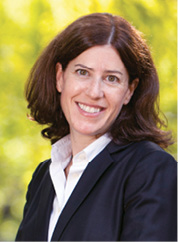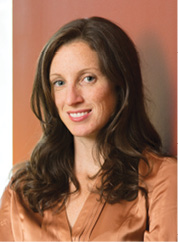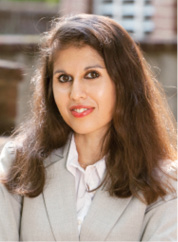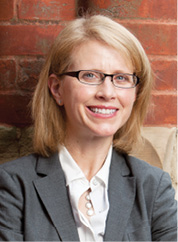Articles authored or co-authored by three Vanderbilt Law professors—Rebecca Allensworth, Lisa Bressman and Yesha Yadav—and an amicus brief organized by Professor Tracey George were cited in recent Supreme Court opinions. Allensworth and Yadav also received prizes for their work.

Bressman’s article, “Statutory Interpretation from the Inside—An Empirical Study of Congressional Drafting, Delegation and the Canons,” co-authored with Abbe R. Gluck, was cited in Justice Elena Kagan’s dissent in the Supreme Court’s decision in Yates v. U.S., handed down February 25. A case that attracted widespread media attention, Yates reversed the conviction of commercial fisherman John Yates for violating the Sarbanes-Oxley Act, which makes it a crime to “knowingly…destroy any record, document, or tangible object with the intent to impede, obstruct, or influence” a federal investigation. In their two-part article published in the Stanford Law Review in 2013 and 2014, Bressman, who holds a David Daniels Allen Distinguished Chair of Law, and Gluck, a professor at Yale Law School, address the role “the realities of the legislative drafting process” should play in statutory interpretations.

A University of Pennsylvania Law Review article co-authored by Associate Professor of Law Rebecca Haw Allensworth and Aaron Edlin of Berkeley Law—“Cartels by Another Name: Should Licensed Occupations Face Antitrust Scrutiny?”—was cited in a slip opinion in North Carolina State Board of Dental Examiners v. FTC delivered by Justice Anthony Kennedy on February 25. This case addressed the question of whether a state regulatory board created by state law, but composed of professionals with a commercial interest in limiting competition, was immune from federal antitrust regulations because it functioned as a state agency. The court’s ruling made it clear that almost all state professional boards are vulnerable to antitrust liability. Writing for the majority, Justice Kennedy cited the 2014 article by Allensworth and Edlin, who had identified the risk of self-interest if a regulatory board was composed of active professional practitioners.
For “Cartels,” Allensworth and Edlin also received the 2015 Jerry S. Cohen Memorial Fund Writing Award, an annual award for the best antitrust writing of the prior year.

Justice Clarence Thomas cited an article by Associate Professor of Law Yesha Yadav, “The Problematic Case of Clearinghouses in Complex Markets,” in his majority opinion in the Supreme Court’s decision in Alice Corporation v. CLS Bank International, handed down June 19, 2014. Alice Corporation, an Australian company, had appealed a district court ruling that Alice’s patents relating to a computerized trading platform, which provides a clearinghouse for financial transactions, were invalid because they were directed toward a patent-ineligible abstract idea. Justice Thomas cited Yadav’s 2013 Georgetown Law Review article to support the court’s ruling upholding the district court’s decision that the patents were invalid.
Another article by Yadav, “Beyond Efficiency in Securities Regulation,” forthcoming in the Vanderbilt Law Review, won first prize at the Junior Faculty Fellow Conference, an annual conference for junior business law faculty held at George Washington University. Yadav’s paper addresses the rise of algorithmic trading, which, she asserts, “profoundly challenges the foundation on which much of today’s securities regulation framework rests—the understanding that securities’ prices objectively reflect available information in the market” because theory and regulation have both “failed to keep pace with markets where traders rely on pre-programmed algorithms to execute trades.”

In her concurring opinion in Williams-Yulee v. Florida Bar, Justice Ruth Bader Ginsburg cited an amicus brief organized by Tracey George, who holds the Charles B. Cox III and Lucy D. Cox Family Chair in Law and Liberty and directs the Branstetter Litigation & Dispute Resolution Program. The Supreme Court’s 5–4 decision in this case, issued April 29, upheld Florida’s ban on the personal solicitations of campaign funds by judicial candidates.
In the majority opinion, written by Chief Justice John Roberts, the court stated, “States may regulate judicial elections differently than they regulate political elections, because the role of judges differs from the role of politicians.” In her concurring opinion, Justice Ginsburg quoted the amicus brief filed by a group of professors of law, economics and political science organized by George to support her point that: “Disproportionate spending to influence court judgments threatens both the appearance and actuality of judicial independence. Numerous studies report that the money that pressure groups spend on judicial elections ‘can affect judicial decision-making across a broad range of cases.’”